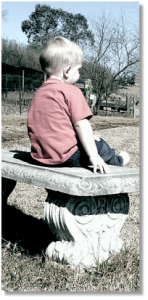Attachment Related Disorders Continued

Support Groups:
Heart to Heart
Carla DeRose, LMFT (916) 947-0371; or Joanne Gelle
(916) 764-8914
Capital Adoptive Families Alliance (CAFA):
Attachment disorders can occur in any child, but they are most often present in children who have suffered from physical abuse, emotional abuse, neglect, and/or the changing of multiple caregivers. Many children feel sad or angry at times or act out impulsively. It is part of growing up.
So how can a parent or caregiver make an informed decision on whether to seek professional help for their child? There are no easy answers. In the end, they must use their own judgment, but there are some guidelines. If the child was abused, neglected, and/or abandoned in the first 36 months of life, or had several changes of his/her primary caretaker, attachment disorders are more likely. In children with Reactive Attachment Disorder and Disinhibited Social Engagement Disorder, the core symptoms present as inappropriate social relating. This can manifest itself in two ways:
- Indiscriminately seeking support and affection from unfamiliar adults, and/or
- Extreme resistance to accepting support and affection, even from familiar adults
Depending on the age of the child, other symptoms can include:
- Superficially engaging and “charming” behavior
- Poor eye-contact with parents
- Persistent nonsense questions and incessant chatter
- Lying about the obvious
- Stealing
- Destructive behavior to self, others, and material things
- Seemingly indifferent to pain
- Bossy with children and adults
- No impulse control
- Learning lags
- Poor peer relationships
- Lack of cause-and-effect thinking
- Lack of age-appropriate conscience
- Cruelty to others, including animals and other living things
- Makes demands instead of requests

